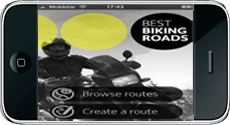Translated by: John Agrafiotis
Last updated:

Currency: €
Driving license: EU citizens just need the European driving license. Non EU citizens must have an International Driving Permit (IDP).
Visa – Passport:EU citizens, citizens of Iceland, Liechtenstein, Norway and Switzerland, don’t need a Visa. Check this page for further details.
Border Crossings: Borders with all neighbor countries are open.
Insurance: EU citizens just need a Green Card. For non EU citizens, make sure that your International Motor Insurance Card is valid for Germany.
Fuel: Unleaded gasoline is called bleifrei normal or bleifrei super. Credit cards are widely accepted. Unleaded 95 costs 1,22 €/lt (12/2020).
Equipment: Drivers and passengers must wear crash helmets.
Time Zone: GMT +1
Maximum Allowed Blood Alcohol Level: 0.05% if you are involved in an accident. Violators must pay high fines and can lose their driver’s license.
Speed limits: There are two default speed limits: 50 km/h (31 mph) inside built-up areas and 100 km/h (62 mph) outside built-up areas. On the German primary road network, the autobahns, there is no speed limit. Parts of the autobahns and many other freeway-style highways usually have a limit of 130 km/h (81 mph). Generally the driver may drive only as fast as he has always full control of the vehicle.
Specificities: Motorcycles must have their lights on all day long. Overtaking a bus, tram or school bus is prohibited.
Fines: The police are allowed to collect fines for most minor traffic offenses on the spot. If you don’t have enough cash, you can usually pay with a credit/debit card. Some traffic violations are considered to be felonies and may be punished by imprisonment if people or property is endangered. These include driving under the influence of alcohol or drugs, leaving the scene of an accident, illegal passing, U-turns and wrong-way driving or backing-up on the Autobahn and reckless driving including excessive speeding.
Parking: You must leave a distance of at least 5 meters when parking near a pedestrian crossing and 15 meters when near a bus or tram stop or a railway line.
Tolls: There aren’t any except on 2 tunells, Herrentunnel and Warnowtunnel.
Signs:
Abstand halten: Keep distance
Alle Richtungen: All directions
Altstadt: Old town
Anfang: Start or Starting point
An geraden Tagen: On even days
An ungeraden Tagen: On odd days
Anschlub: Crossroad
Ausfahrt: Exit
Autobahndreieck: Highway junction (Τ)
Autobahnkreuz: Highway junction
Bauarbeiten or Baustelle: Roadworks
Bei Nässe: In rain condition
Belegt or Besetzt: Full
Centrum: Town center
Durchfahrt verboten: No entry for vehicles
Einbahnstrabe: One-way
Einfahrt: Entrance
Ende: End
Frei: Free entrance
Gasse: Kane
Gefahr/gefährlich: Danger
Grenze: Borders
Halt: Stop
Haltestelle: Tram or bus station
Keine, Kein: No
Keine einfahrt: No entry
Kraftfahrzeugwerkstatt: Workshop
Kreuzung: Intersection
Landschafts Schutzgebiet: Protected area, do not stop
Langsam fahren: Reduse speed
Licht einschalten: Switch on your lights
Parkhaus: Garage parking
Polizei: Police
Radweg kreutz: Bicycle road
Sackgasse: Dead end
Schlechte Wegstrecke: bad road surface
Stadtzentrum or Stadtmitte: Town center
Stau: Traffic jam
Straße: Road
Tankstelle: Gas Station
Überholen verboten: Overtaking prohibited
Umleitung: Detour
Unfall: Caution accident
Verboten: Prohibited
Verkehr: Traffic
Vorfahrt: Priority right
Vorfahrtstraße: Priority road
Vorsicht: Caution
Zentrum: Center
Zufahrt frei: Free entrance
Useful Phone Numbers:
Police: 110
Fire Department: 112
Ambulance: 112
ADAC (Road service): (01802) 22 22 22
Emergency phones can be found every 2 km on autobahns. Just pick it and wait for an answer. Usually the person that will answer, speaks English.
Useful links:
Wikitravel Germany
Germany Tourism official page
Lonely Planet Germany
Related trips:
From Northern Latitudes (In Greek language only)
The course is against us – it’s set for the north (In Greek language only)
On the way to North Cape (In Greek language only)
Austria through Balkans (In Greek language only)
At the northern edge of Europe (In Greek language only)
15 days in central Europe (In Greek language only)
* If you are from Germany or have been recently in Germany and you would like to add some information or correct some of the above listed, do not hesitate to contact us.








